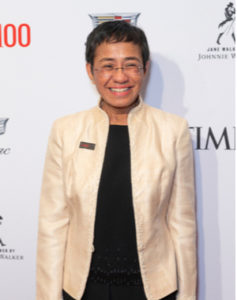Comment
-1
archive,paged,category,category-comment,category-212,paged-15,category-paged-15,wp-theme-bridge,wp-child-theme-WACC-bridge,bridge-core-3.3.4.6,qodef-qi--no-touch,qi-addons-for-elementor-1.9.5,qode-page-transition-enabled,ajax_fade,page_not_loaded,,qode-title-hidden,qode-smooth-scroll-enabled,qode-child-theme-ver-1.0.0,qode-theme-ver-30.8.8.6,qode-theme-bridge,qode_header_in_grid,qode-wpml-enabled,wpb-js-composer js-comp-ver-8.7.2,vc_responsive,elementor-default,elementor-kit-41156
10 Aug 2020 Tackling hate speech online and offline
There is nothing new about hate speech. What has changed is the mode of delivery. In Nazi Germany, it was state-controlled newspapers and radio. At the time of the genocide in Rwanda, it was a radio station run by the Hutu government. Today, it is social media, until recently largely unregulated.03 Aug 2020 VAW: A plague within the pandemic but not headline news
Last year the South African president elevated the epidemic of violence against women to national crisis level following pressure from activists, promising to put in place a public national register of offenders, a review of cold cases and harsher penalties for perpetrators.27 Jul 2020 News media, discrimination, and bias
No apologies for quoting at length from “The Media Isn’t Ready to Cover Climate Apartheid” by Michelle García (The Nation, 17 June 2020). While praising the public service ethic of many media outlets, whose coverage of the Covid-19 pandemic has been exemplary, she notes an apparent reticence or inability to delve in depth into its impact on the most marginalized. She also questions media preparedness for the greater crisis to follow:20 Jul 2020 Enabling community engagement in humanitarian responses
[caption id="attachment_26456" align="alignleft" width="300"] Image: United Nations COVID-19 response[/caption]
In times of disaster, the need to engage with affected communities to ensure useful, timely and accurate information is mutually shared is increasingly recognised as essential.
Image: United Nations COVID-19 response[/caption]
In times of disaster, the need to engage with affected communities to ensure useful, timely and accurate information is mutually shared is increasingly recognised as essential.
13 Jul 2020 Speaking up for free speech
A group of 153 academics, writers, and social activists published a letter in Harper’s Magazine (7 July 2020) expressing concern that “a new set of moral attitudes and political commitments” are tending “to weaken norms of open debate and toleration of differences in favor of ideological conformity”.06 Jul 2020 The enemy on your wrist
Tags: surveillance, wearables, monitoring tools, privacy Electronic tagging has always been controversial. Today it is being touted in the name of health security.29 Jun 2020 Toppling statues are opportunities for collective reflection
Protests against racism unleashed by the killing of George Floyd, an unarmed Black man, at the hands of police in Minneapolis spread all over the United States, Canada, and parts of Europe in May and June of this year.22 Jun 2020 Protecting journalists is a balancing act between dictums and dictators
The Philippines is facing another crackdown on media freedoms. [caption id="attachment_26326" align="alignleft" width="237"] Maria Ressa. Photo: Lev Radin/Shutterstock[/caption]
On June 15, 2020, a court in the capital Manila, convicted former CNN journalist Maria Ressa and former Rappler writer Reynaldo Santos Jr. of cyber libel for publishing an article that implicated a prominent businessman who was allegedly involved in human trafficking and drug smuggling.
Maria Ressa. Photo: Lev Radin/Shutterstock[/caption]
On June 15, 2020, a court in the capital Manila, convicted former CNN journalist Maria Ressa and former Rappler writer Reynaldo Santos Jr. of cyber libel for publishing an article that implicated a prominent businessman who was allegedly involved in human trafficking and drug smuggling.










